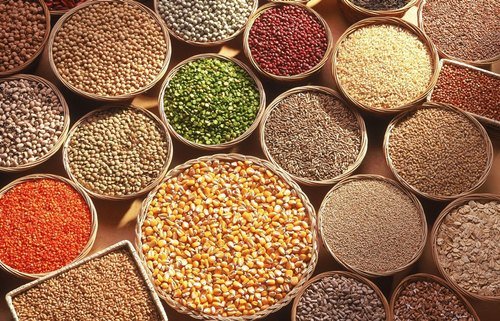Women led FPO from Odisha exports 1 MT Green Papaya to London
Green Papaya from Odisha has a significant competitive advantage in export markets owing to its nutritional value, distinct flavour, availability, and low cost of production.
In a significant milestone on International Women’s Day, 1 metric ton (MT) of locally grown premium quality Green Papaya from Dhenkanal, Odisha was flagged off for export to London, United Kingdom at Netaji Subhash Chandra Bose international airport, Kolkata. The green papayas were grown by women farmer members of Saptasajya Agro Producer Company Ltd., Dhenkanal. With support from the Department of Agriculture and Farmers’ Empowerment, Government of Odisha, Agricultural and Processed Food Products Export Development Authority (APEDA), and Palladium Consulting India Private Limited, the FPO successfully facilitated the first-ever shipment of Green Papaya to London. Green Papaya from Odisha has a significant competitive advantage in export markets owing to its nutritional value, distinct flavour, availability, and low cost of production.
The virtual flag-off ceremony was attended by dignitaries including Abhishek Dev, IAS, Chairman, APEDA, Nikhil Pavan Kalyan, IAS, Director of Horticulture, Department of Agriculture and Farmers’ empowerment, Government of Odisha, Bibhuti Bhushana Dash, IOFS, Special Secretary, Department of MSME, Govt. of Odisha, Dr Sudhanshu, Secretary, APEDA, Sitakanta Mandal, Regional Director, east-zone, APEDA, Mrs. Nimeshika Natarajan, Assistant Director, World Trade Centre Bhubaneswar, Geetashree Parhi, DDH Dhenkanal, Amit Patjoshi, CEO, Palladium and Mrinal Sinha, from M/s DMR Green Valley Agro Fresh Pvt. Ltd., Kolkata. The Board of Director member of Saptasajya agro FPC, Sudiptaranjan & women farmer members of the FPC shared their experience of supplying premium quality green papaya to London while they acknowledged the necessary handholding support on the post-harvest management practices by Palladium.
During the event, Abhishek Dev, IAS, Chairman, APEDA, highlighted that “The export of fresh produce from Odisha over the past year has led to a significant increase of over 40 per cent in price realization for farmers and Farmer Producer Organizations (FPOs) in the state. In the coming months, APEDA will intensify its efforts to promote the export of fresh horticultural produce, including organic products, from Odisha by identifying key products with export potential. Further, APEDA’s commitment to enhancing market linkages for farmers and FPOs will also include extending the necessary infrastructural and logistical support as well as market connect facilitation to ensure greater access to high-value international markets.”
Congratulating on successful export of Green papaya to London, Nikhil Pavan Kalyan, IAS, Director of Horticulture, DA&FE, Govt. of Odisha stated that “In this financial year, we have successfully facilitated the export of fresh produce from Odisha to international markets, in collaboration with APEDA and Palladium. Recognizing the immense potential in agri-exports, we recently organized a stakeholders’ meet to address existing challenges and identify a strategic way forward. Building on the insights gathered, we are now focused on developing a comprehensive roadmap to significantly boost the export of fresh fruits and vegetables from the state. The Department remains committed to fostering a robust ecosystem that will empower farmers and enhance Odisha’s presence in global agricultural markets.”
Highlighting the growing momentum in agri-exports from the state, Bibhuti Bhushana Dash, IOFS, Special Secretary, Department of MSME, noted that Odisha, once primarily recognized for its metal and metallurgy exports, is now making significant strides in diversifying its export basket with fresh agricultural produce. He acknowledged the pivotal role played by Palladium in enabling this shift, emphasizing that the increasing export of fruits and vegetables is opening new avenues for the state’s farmers, thereby strengthening Odisha’s presence in global markets. Nimeshika Natarajan, Assistant Director, World Trade Centre, Bhubaneswar also addressed the participants and highlighted the role of World Trade Centre in facilitating agri-exports.
Speaking at the event, Amit Patjoshi, CEO of Palladium Consulting India Private Limited, highlighted the significance of this achievement. “This export of Green Papaya to London is a testament to the hard work and resilience of our farmers. Palladium remains committed to enabling FPOs to tap into high-value global markets, ensuring better price realization and economic growth for smallholder farmers,” he stated.
Green Papaya from Odisha has a significant






